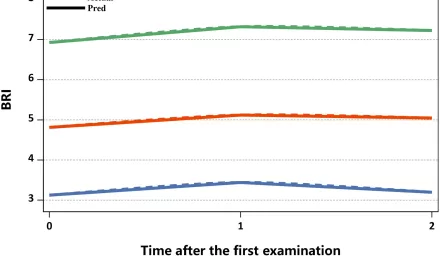UC Davis Study Links Early Asthma Onset to Cognitive Difficulties
A new study from the University of California, Davis, suggests that childhood asthma may have long-lasting effects on memory, with earlier onset of the condition potentially exacerbating these cognitive challenges. Published on November 5 in JAMA Network Open, this groundbreaking research is the first to establish a clear connection between asthma and memory deficits in children.
“This study underscores the importance of looking at asthma as a potential source of cognitive difficulty in children,” said Simona Ghetti, a professor of psychology in the UC Davis Center for Mind and Brain and the study’s lead author. “We are becoming increasingly aware that chronic diseases—whether it’s asthma, diabetes, or heart disease—may place children at increased risk of cognitive difficulties.”
Asthma is a chronic lung condition that affects more than 260 million people worldwide, with approximately 4.6 million children in the U.S. living with the disease. Asthma attacks occur when inflammation tightens the airways, making it difficult to breathe. While the condition is commonly associated with physical symptoms, the new findings suggest that asthma could also impair cognitive functions, specifically memory.
Linking Asthma to Memory Development
Childhood is a critical period for cognitive development, including memory. In the study, researchers tested how asthma might influence a specific type of memory known as episodic memory—the ability to recall personal experiences and events.
Data from 2,062 children, ages 9 to 10, revealed that children with asthma performed worse on episodic memory tasks than their asthma-free peers. A smaller subset of 473 children, who were tracked for two years, found that those with earlier-onset asthma exhibited slower memory development over time.
“Childhood is a period of rapid improvement in memory and cognition,” explained Nicholas Christopher-Hayes, a Ph.D. candidate at UC Davis and the study’s first author. “But for children with asthma, this cognitive improvement may be slower or more limited.”
The study’s data was sourced from the National Institutes of Health and was part of the large, ongoing Adolescent Brain Cognitive Development study, which follows 11,800 children. Researchers carefully compared children with similar backgrounds to isolate asthma as a factor influencing memory performance.
Potential Long-Term Effects of Asthma on Cognitive Health
The researchers also pointed out the potential long-term consequences of these memory deficits. Previous studies in older adults and animal models have suggested a link between asthma and an increased risk of dementia and Alzheimer’s disease—both of which are known to affect memory.
“Asthma might set children on a trajectory that could increase their risk of developing more serious cognitive issues, like dementia, later in life,” said Christopher-Hayes.
Although the study did not determine the exact mechanisms behind these memory issues, the researchers hypothesize that prolonged inflammation from asthma or recurring disruptions in oxygen supply to the brain during asthma attacks could be contributing factors. Additionally, prior animal research has shown that asthma medications may impact the hippocampus, a part of the brain vital to memory formation.
Next Steps in Understanding the Link Between Asthma and Cognitive Function
This new study opens the door to further research into how asthma might affect brain health over the long term, particularly in children. By identifying the risks early, researchers hope to explore ways to mitigate these effects, potentially improving outcomes for children with asthma.
“We need to understand the factors that could either exacerbate or protect against these risks,” Ghetti emphasized. “Our goal is not only to treat the physical symptoms of asthma but also to safeguard the cognitive health of children living with this condition.”
Study Reference:
“Asthma and Memory Function in Children,” by Nicholas J. Christopher-Hayes, Sarah C. Haynes, Nicholas J. Kenyon, Vidya D. Merchant, Julie B. Schweitzer, and Simona Ghetti, JAMA Network Open, November 11, 2024. DOI: 10.1001/jamanetworkopen.2024.42803.
The study was supported by the Memory and Plasticity Program at UC Davis and a fellowship from the National Institutes of Health’s Learning, Memory, and Plasticity Training Program.












